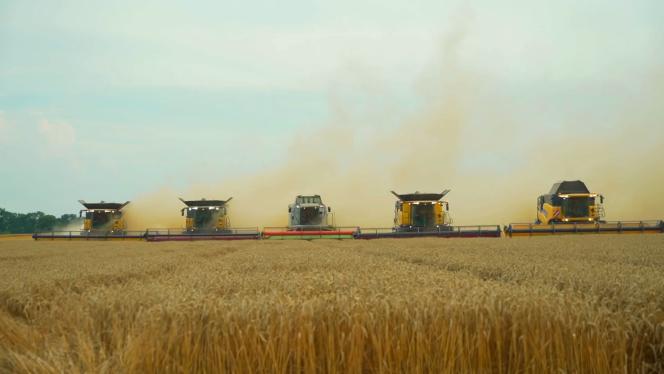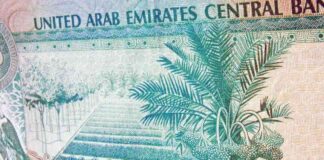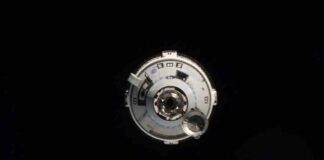The CAP is 60 years old: the age for the common agricultural policy of a major overhaul! While it was established in 1962 to support agricultural production and allow the European Union (EU) to regain its food independence, Brussels has opted, over the decades, for a policy coupled with the opening of markets, pushing the sector to industrialize more and more. Until the environmental crisis calls into question this productivist, polluting and deficit model, which values large farms infused with European aid.
Should we laugh or cry? Elise Lucet and documentary filmmaker Véronique Blanc have chosen humor. It takes a lot to try to see clearly on the distribution of the 9 billion euros collected by France – for a total of 55 billion annually distributed by the EU to all of the Twenty-Seven, which makes it the first recipient.
Daring a fictional introduction, “Cash Investigation” lays the foundation for this redistribution in the form of a real cake, the “PAC cake”. The opportunity to see that Elise Lucet handles both the shovel and the microphone to interview Pierre Bascou, Director General for Agriculture and Rural Development at the European Commission.
Three eloquent reports
Behind the light form, the investigation is overwhelming. If it is not abnormal that France receives the most subsidies – it has the most farmers and cultivated land -, it is at the very least curious that half of the “PAC cake” goes to 20% of the beneficiaries and some have nothing at all. This is the case of Gwénaël Floch, organic producer, who has not received a penny in twelve years of activity. He too prefers to smile, as the administrative explanations for this breach are reminiscent of the sketch by humorist Roman Frayssinet on the payment of a fine.
Véronique Blanc draws for her part, in three eloquent reports, another CAP: with a P for “Green payment” – name of the financing created in 2015 to preserve biodiversity and fight against agricultural pollution and which has since swallowed 96 million euros for practice changes on just 5% of agricultural land –; an A like Andrej Babis (this Czech billionaire, owner of Agrofert, the biggest beneficiary of the CAP, took advantage of taxpayers’ money to appropriate land and subsidies); and a C for Corsica.
In 2015, on the Isle of Beauty, the then Minister of Agriculture, Stéphane Le Foll, decided, to compensate for the undervaluation of extensive farming – in Corsica, they say that cows “wander” – to increase the allocation of the CAP, creating at the same time a windfall effect, which the local population has been able to seize with inventiveness.
The examples of this opportunism provided here are similar to gags, between a recalcitrant beneficiary who roundly summons the two journalists to leave and a real estate agent who would have unduly received more than 115,000 euros in three years…
Elise Lucet gets serious: it’s taxpayers’ money after all. A new CAP allocation system is due to come into effect in 2023. Time for a second volume for “Cash Investigation”?

















